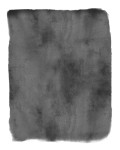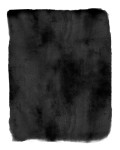Tonight and tomorrow is Purim, the holiday celebrating the deliverance of the Jews of Persia from the evil machinations of the King’s vizier. There are four central mitzvot (commandments) of this holiday, but the most iconic one is the reading of the book of Esther, known as the Megillah (Scroll).
Megillat Esther has a special trope (melody) that I’ve never learned, but this year, we’re all reading out of books at home via Zoom, and our rabbi asked me if I would take on reading chapter 4. This chapter, as it happens, has several verses that are read in the the trope used for the book of Eicha (Lamentations) on Tisha B’Av, which I learned a couple years ago, so I figured that was a sign that I should step up.
This chapter also includes a verse that has always resonated with me. Queen Esther (in the palace) and her uncle Mordechai (protesting out in the town square) exchange a series of messages via Hatach, the chamberlain, about the looming crisis for the Jews. Mordechai implores Esther to use her privileged status and access to the king to intervene for her people, saying, “Do not think that because you are in the king’s house you alone of all the Jews will escape. For if you remain silent at this time, relief and deliverance for the Jews will arise from another place, but you and your father’s family will perish. And who knows but that you have come to power for such a time as this?” (Esther 4:13-14)

For this image, I wanted a watercolor wash background, and since it was surprisingly hard to find a suitable free version, I created my own in Photoshop. Drop me an email or a comment if you want a pointer to the exact brush settings. Then I darkened it up to improve the contrast.
I saved my images as grayscale TIFFs so I could apply the magenta color to them in InDesign, but WordPress is making me post them here as JPEGs. Do with them what you will – these backgrounds are free for personal or commercial use – but please find a way to link back to schultzyakovetz.com if you want to maintain good Internet karma.
- The original version
- The darkened version
- In place with color applied in InDesign.
The script font I chose is Selima, a lovely free brush script created by Jroh Creative. The block face is classic Goudy Old Style and the Hebrew is the beautiful Escritura Hebrew Demibold by Ricardo Santos.
May we all use our power and privilege to do good anytime we find ourselves in a position to do so. Who knows but that we were placed there for just such a time?
Now, off to finish cramming that reading! Purim sameach!



